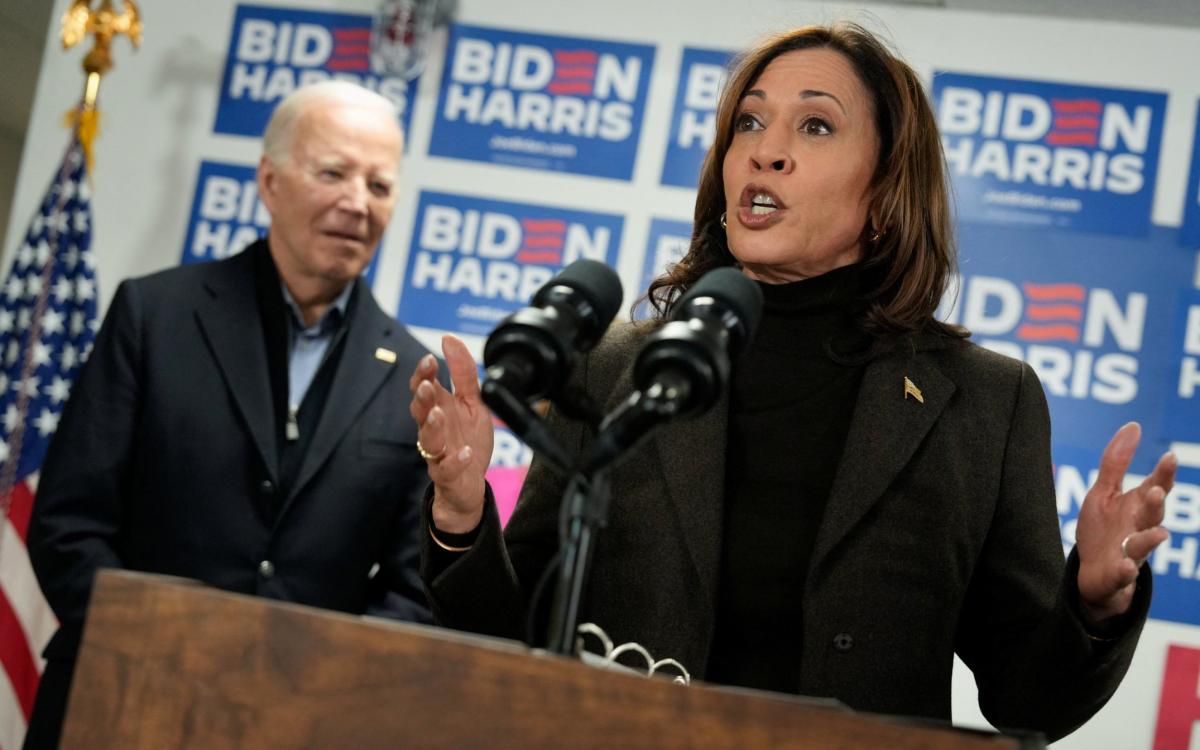If in 2019 a Democratic strategist peered five years into the future and learned Joe Biden was president and his health was failing, news of Biden’s veep pick would come as sweet relief. Glamour Magazine’s 2018 “Woman of the Year,” a former California attorney general and US senator, Kamala Harris looked like the bright future of the Democratic Party.
Now, though, most observers anxious about Biden’s public senility find no solace in Harris. If Biden needed to be replaced as the Democratic nominee, scuttlebutt suggests establishment Democrats would prefer to skip over Harris and look first to Govs. Gavin Newsom or Gretchen Whitmer. This is not normal.
Harris, for her part, has proven to be less than normal as vice president. Most notably, she’s become a font of aphorisms so inscrutable that viral infamy is assured nearly every time Harris gives a major speech or interview. Consider her thoughts on the children of the community: “When we talk about the children of the community, they are a children of the community.”
Back in 2022, Harris mustered a sense of urgency: “It is time for us to do what we have been doing, and that time is every day.”
Harris also shared some thoughts on the calendar. “The significance of the passage of time, right? The significance of the passage of time. So when you think about it, there is great significance to the passage of time,” said the vice president.
On Putin’s invasion, a major priority of her administration, Harris told a radio audience, “So Ukraine is a country in Europe. It exists next to another country called Russia. Russia is a bigger country. Russia is a powerful country. Russia decided to invade a smaller country called Ukraine. So, basically, that’s wrong.”
Losing so much political capital is not easy work. Harris’s much-hyped presidential campaign crashed and burned, a spectacular implosion that reflects necessarily on the candidate’s ability to lead. Her business-friendly cultural leftism is less appealing after the uproar of 2020, and her vague postures no longer come across as lofty so much as they seem evasive.
The numbers bear this out. Harris’s favourability rating climbed steadily from her presidential campaign launch in 2019 to her inauguration in 2021. In the three years since, her favourability has dipped significantly, according to polling trends.
In January, for instance, an Economist/YouGov poll put Harris’s net favourability at -12. Back in January of 2019, another Economist/YouGov poll put her net favourability at zero, with 35 per cent of adults favourable and 35 per cent unfavourable. Now, 42 per cent are favourable and 54 per cent are unfavourable. Most polls since 2022 have found a majority of respondents harbor an unfavourable impression of the veep.
A Los Angeles Times analysis in January found “Harris’ net favourability is slightly lower than that of former Vice President Mike Pence at this point in their respective tenures, and it’s well under the ratings of three previous vice presidents.”
That’s especially devastating for a woman who found herself splashed on the covers of glossy magazines, enjoying eager support from fawning journalists. Pence, of course, experienced nothing of the sort. Harris really had it all.
Now, amid the fallout from Special Counsel Robert Hur’s description of Biden as a “sympathetic, well-meaning elderly man with a poor memory,” Harris stands to lose it all if the commander-in-chief willingly gives up his grip on power. Already, analysts are jumping to explore the legal mechanisms by which Democrats could nominate someone other than Harris. Hardly anyone believes she’d top the ticket if party bosses have a choice.
Once a good bet for the Democratic nomination, Harris is now not even a good bet for Biden’s replacement – and she’s the vice president.

















Discussion about this post